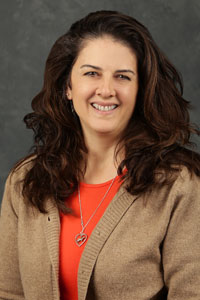The author and her husband, Duane, own and operate a 550-cow dairy in Cochranville, Pa.

We all have had that special calf that we could designate the princess of the farm — a calf that stands out above the rest. She has a unique personality that makes her presence known. Maybe she gains attention each morning by the way she tilts her head sideways, the way she begs for more milk, or the aggressive nature in which she drinks.

Maybe the princess happens to be from the best cow family with the strongest potential to top the milking herd or showstring. Her style and conformation elevate her well above her herdmates, and she carries herself in a royal manner, holding her head high, walking with grace, and prancing around the pen.
When I was feeding calves full time, I always had a favorite calf picked out. For one reason or another, I usually called this particular calf my “princess.” Her pen always has clean bedding, and her feed and water are always fresh. Granted, every calf in the barn is supposed to get this special and equal treatment, but the really special ones get the first and the last look of the day. Raising a princess adds an element of excitement to the process.
Royalty has always come with extra effort over the years, but I would also add that the extra time was worth the additional attention. I remember when the children had show calves in the barn; those calves were deemed royalty every single time.
Like every princess, those calves grow up and, more times than not, they do not forget the special attention. They think this is the standard no matter what age they are or no matter what area of the barn they stand. Once they are spoiled and pampered as young animals, they follow us around, expecting their heads to be scratched and every need to be met.
There is a lot for show animals to learn about being a cow and the expectations of daily attention. But I always needed to be ready when walking through the barns when the past princesses are nearby.
Princesses have also been a part of my personal life, not just lived out in my animals. Duane and I raised a princess. Although she would have rather been in sweatpants and sneakers on a basketball court than pampered and crowned the princess, she was the crown jewel of our family nonetheless.
Kacie is the youngest with three older brothers, and although we loved our sons immensely, there was something special about having a daughter. She soon claimed her spot as the princess of the family. Eventually, she gave up that title when our granddaughters became the reigning princesses in the family.
Our dairy industry recognizes the value of a princess. For decades there have been county and state dairy princess programs across the country. Each one has a unique twist, with a slightly different set of requirements and expectations. They all have a commonality of dairy promotion and training young ladies in leadership, confidence, and nutrition.
The participants bring their own personality to the role. Whether they come from a farm family background or are familiar with farming in some other way, there is a strong tie back to agriculture and a desire to tell the story of farming and the value of dairy products in our lives.
I was fortunate to serve as the Chester County Dairy Princess many decades ago. That experience still rings as a foundational moment in my life, planting in me a deep commitment to promote dairy nutrition and tell my farming story.
Some are iconic programs with premier recognition. Alice in Dairyland spends hours promoting dairy and other agricultural industries in her home state of Wisconsin. Princess Kay of the Milky Way is also an amazing program that highlights farm families in Minnesota. This individual commits to a year of promoting dairy goodness across the state. A plus to the Princess Kay program is that all 10 finalists are recognized at the Minnesota State Fair with a sculpted butter head, and that alone gains a wealth of public attention. It is not every day that there is a 90-pound chunk of butter being sculpted to the likeness of a princess.
There are many great programs across the country, and I hope they continue to thrive and develop excited princesses to promote agriculture. It is not easy to maintain these programs, and, they must evolve and change with the the times. But, the value of having royalty in our dairy communities is important.
We need to make sure that we are nurturing and caring for young talent. We must support the programs and give them the attention they need to thrive — just like the princesses in our barns.





